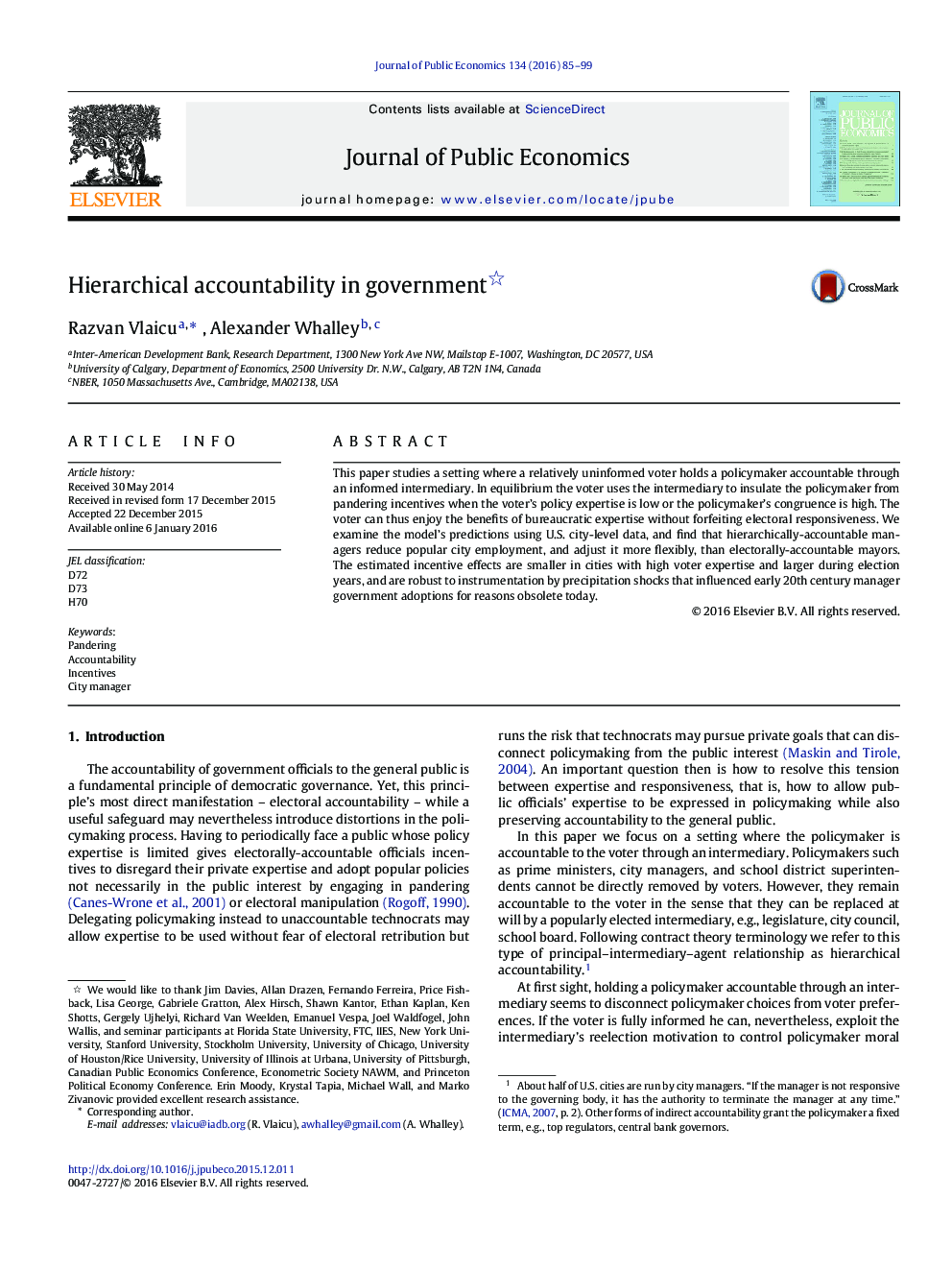| Article ID | Journal | Published Year | Pages | File Type |
|---|---|---|---|---|
| 968654 | Journal of Public Economics | 2016 | 15 Pages |
•Hierarchical agency model (voter–intermediary–policymaker) with adverse selection and moral hazard.•The voter uses the intermediary to insulate the policymaker from pandering incentives.•The conditions for insulation to happen are low voter policy expertise and high policymaker congruence.•Hierarchically-accountable city managers reduce popular city employment than electorally-accountable mayors.•Managers also adjust policy more flexibly than mayors.•The estimated incentive effects are smaller in cities with high voter expertise and larger during election years.•New instrumental variable for manager government.
This paper studies a setting where a relatively uninformed voter holds a policymaker accountable through an informed intermediary. In equilibrium the voter uses the intermediary to insulate the policymaker from pandering incentives when the voter's policy expertise is low or the policymaker's congruence is high. The voter can thus enjoy the benefits of bureaucratic expertise without forfeiting electoral responsiveness. We examine the model's predictions using U.S. city-level data, and find that hierarchically-accountable managers reduce popular city employment, and adjust it more flexibly, than electorally-accountable mayors. The estimated incentive effects are smaller in cities with high voter expertise and larger during election years, and are robust to instrumentation by precipitation shocks that influenced early 20th century manager government adoptions for reasons obsolete today.
